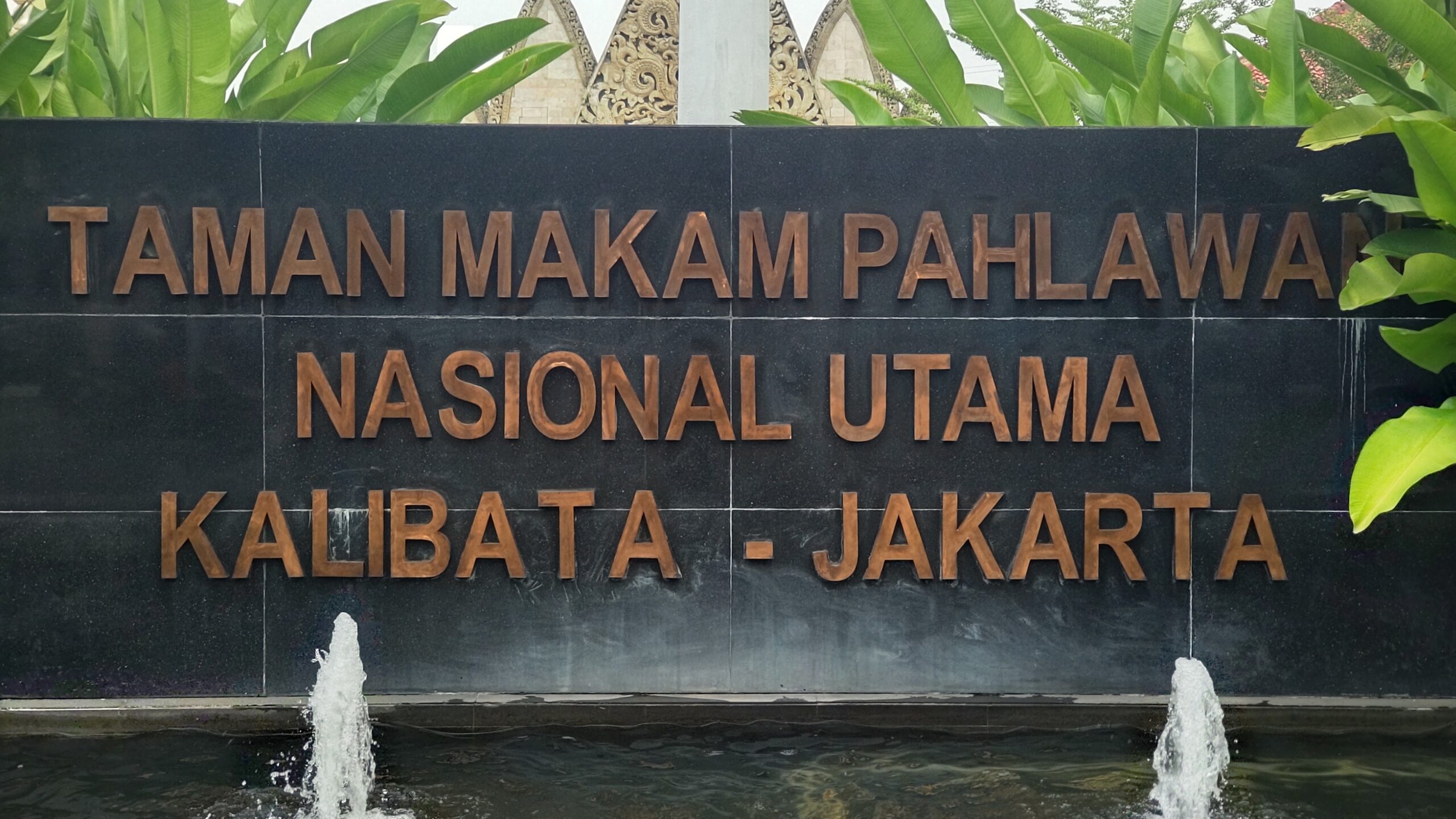In June 2023 and July 2024, I visited Kalibata Heroes’ Cemetery during my visits to Jakarta, Indonesia. Based on my experiences, I will introduce the former Japanese soldiers who never returned to Japan and are now buried as heroes in Indonesia.
Please note: The photos of the cemetery and tombstones in this article were taken with permission from the guide.
Kalibata Heroes’ Cemetery and the Buried Former Japanese Soldiers
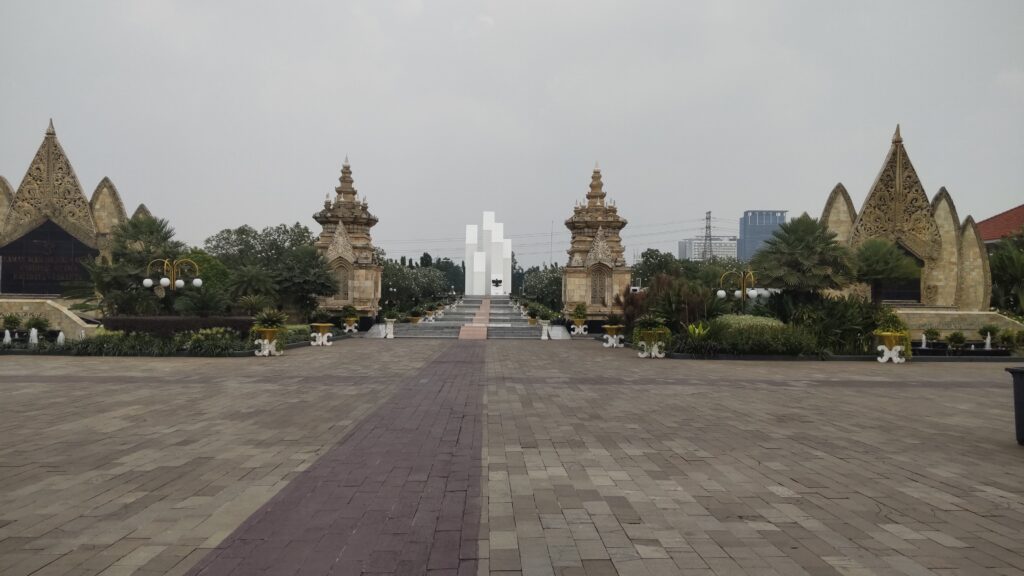
Introduction
Kalibata Heroes’ Cemetery is a national cemetery located in the Kalibata district on the outskirts of Jakarta, Indonesia’s capital. It is the resting place for heroes who participated in the Indonesian War of Independence, and among them are 28 former Japanese soldiers. This article will provide a detailed explanation of the history of Kalibata Heroes’ Cemetery and the former Japanese soldiers buried there.
History of Kalibata Heroes’ Cemetery
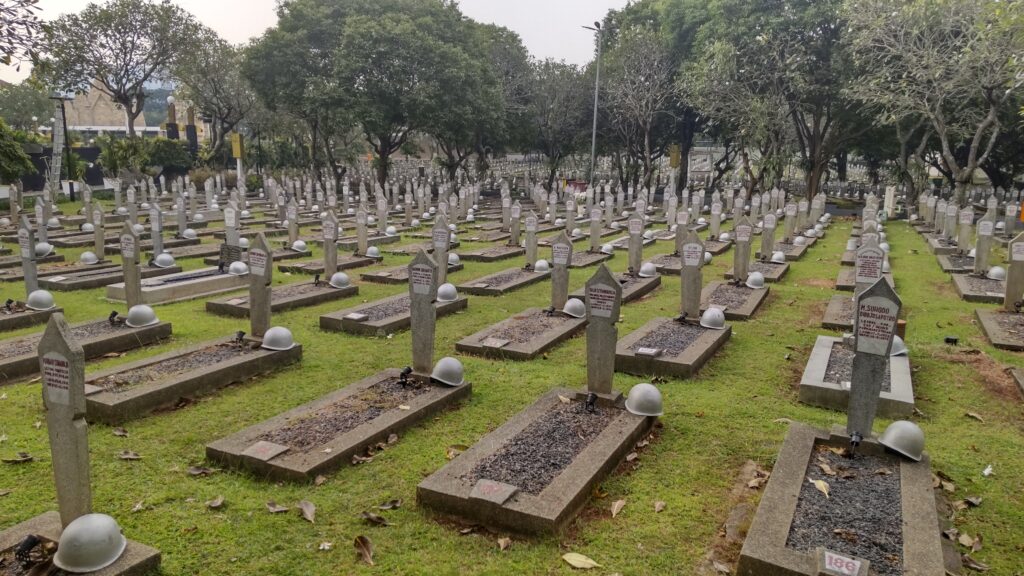
Kalibata Heroes’ Cemetery was established shortly after Indonesia declared independence on August 17, 1945, by converting a military cemetery from the Dutch colonial era. It became the burial ground for heroes who participated in the War of Independence, a place to honor those who fought to protect Indonesia’s independence and freedom.
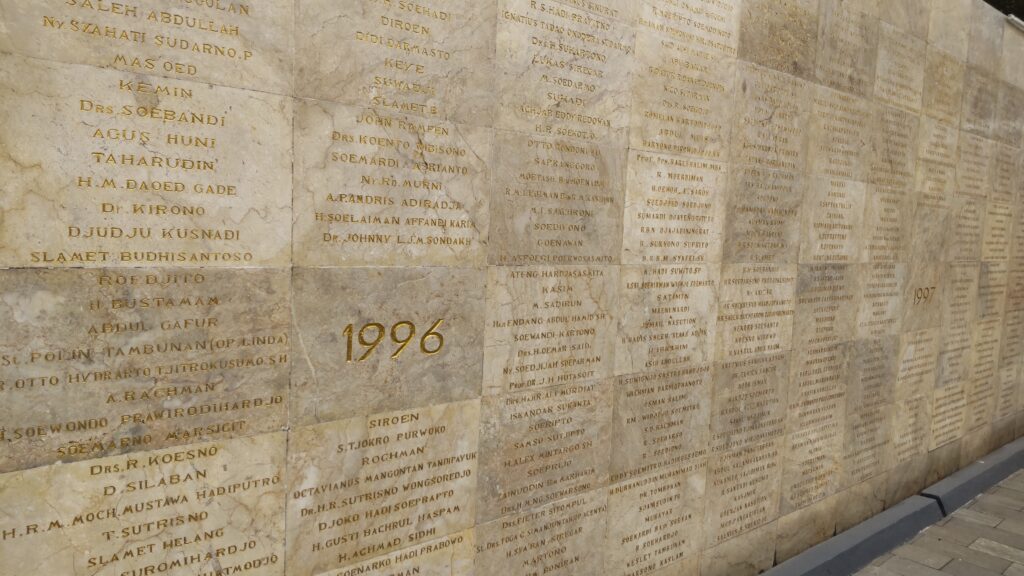
The Indonesian War of Independence
The Indonesian War of Independence began when the Netherlands launched a war to continue its colonial rule after Indonesia declared independence on August 17, 1945. The war lasted for four years, ultimately concluding on December 27, 1949, when the Netherlands recognized Indonesia’s independence.
Buried Former Japanese Soldiers
After World War II, some former Japanese soldiers sympathized with the Indonesian independence movement. They supported the Indonesian independence army by providing weapons and military knowledge, or by participating in guerrilla warfare. They are known as “Ryuzan Heishi” (Remaining Japanese Soldiers).
While the exact number of remaining Japanese soldiers varies, it is estimated to be between 1,000 and 2,000. They were scattered across various parts of Indonesia and were involved in the independence movement in various ways. Representative remaining Japanese soldiers include:
- Nagayoshi Sugiyama: Former Army Second Lieutenant. He commanded guerrilla units in the Indonesian independence army and achieved many victories. He remained in Indonesia after the war and served as an advisor to the Indonesian military.
- Mori Ono: Former Army Sergeant Major. He was active as Deputy Commander of Sugiyama’s unit. He also remained in Indonesia after the war and acquired Indonesian citizenship.
- Goro Yamano: Former Army Private First Class. He earned fame in guerrilla warfare and was called “The Tiger of Indonesia.” He remained in Indonesia after the war and became a soldier in the Indonesian military.
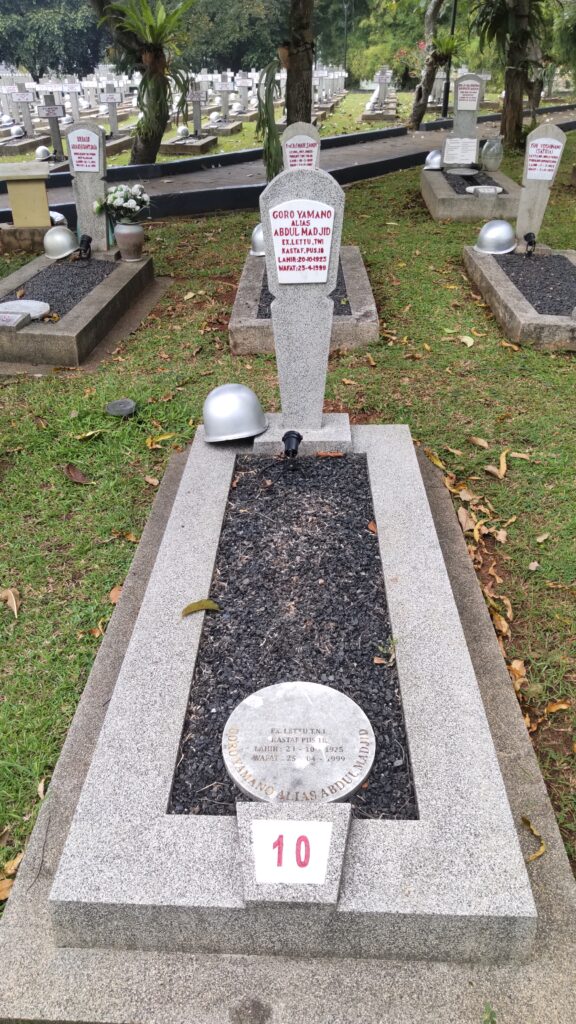
The remaining Japanese soldiers played an important role in the Indonesian War of Independence. They utilized their military knowledge and experience to lead the independence army and boost morale. Furthermore, by living alongside the Indonesian people, they deepened mutual understanding and built friendships.
After the Indonesian War of Independence concluded, many remaining Japanese soldiers returned to Japan. However, a significant number chose to stay in Indonesia and acquire Indonesian citizenship. The Indonesian government highly praised the contributions of these remaining Japanese soldiers and honored them as heroes of the War of Independence. Twenty-eight former Japanese soldiers are buried in Kalibata Heroes’ Cemetery.
The former Japanese soldiers buried at Kalibata Heroes’ Cemetery were former Imperial Japanese Army soldiers who participated in the Indonesian War of Independence. After the war, they remained in Indonesia, supporting the independence movement or living alongside the local people. In the 1970s, a movement to repatriate the remains of these former Japanese soldiers to Japan gained momentum. However, the Indonesian government took the stance that these former Japanese soldiers should also be respected as heroes who participated in the War of Independence, and the repatriation movement was unsuccessful.
Currently, Kalibata Heroes’ Cemetery is an important historical and cultural site for the Indonesian people. Many Indonesians visit annually to pay their respects to the heroes of the War of Independence. The cemetery also has a memorial to the former Japanese soldiers, symbolizing the friendly relations between Japan and Indonesia.
In recent years, the activities of the remaining Japanese soldiers in the Indonesian War of Independence have finally begun to attract attention in Japan. Books and films about them have also been published and produced. If you wish to learn more about the Indonesian War of Independence and the Japanese who participated, please refer to the following resources:
My Experience Visiting Kalibata Heroes’ Cemetery
I visited Kalibata Heroes’ Cemetery two consecutive years, in June 2023 and July 2024. During my first visit in 2023, I knew nothing about Kalibata Heroes’ Cemetery. By chance, while I was in Jakarta, I saw news reports that Their Majesties the Emperor and Empress of Japan had visited Indonesia and laid flowers at Kalibata Heroes’ Cemetery. Upon researching, I found it was accessible by train from central Jakarta, so I visited the same place three days after Their Majesties’ visit.
Kalibata Heroes’ Cemetery is a military facility, not a tourist spot or famous landmark. I wasn’t sure if an ordinary traveler like myself could enter. When I asked the guard at the gate if a Japanese traveler could enter, he escorted me to the office inside the compound. When I explained my desire to visit again to the military officer stationed there, he asked for my passport and assigned one military officer to guide me. The guiding officer showed me the graves of the former Japanese soldiers within the vast compound. Finally, he took a photo of me with the memorial as a backdrop, and my visit concluded. I hadn’t expected to be guided specifically for myself, but I thought perhaps it was a special arrangement because Their Majesties had visited just three days prior, so I thanked him and left.
Then, a year later, in July 2024, I visited again, and once more, I was asked for my passport and provided with a guide. I don’t know if this is done for everyone, all the time. From what I observed, it didn’t seem like a routine procedure. The previous year, there were visitors who appeared to be family members of the deceased, but I didn’t see any other tourists like myself. Finally, when I asked if many Japanese people visit, I was told that they do not.
Conclusion
Perhaps many people are unaware that former Japanese soldiers participated in the Indonesian War of Independence and that many who remained after the war died and are buried there. While Jakarta may be more of a business or transit hub than a tourist destination, it’s certainly true that many Japanese people reside there. I believe this fact should be more widely known.
Even I, myself, was completely unaware of this until last year. It’s a shame that even after Their Majesties’ visit last year, hardly any Japanese people are coming. It’s not a tourist attraction, nor is it a place for boisterous crowds. However, if you have the opportunity to stay in Jakarta, it’s a perfectly feasible day trip, and a visit might be worthwhile. This cemetery is a place that honors (praises) those who fought for the nation’s independence as heroes. As Japanese, we should not forget that our present exists thanks to such ancestors.

